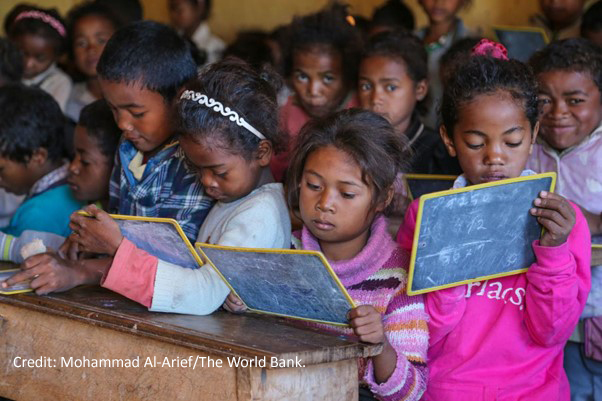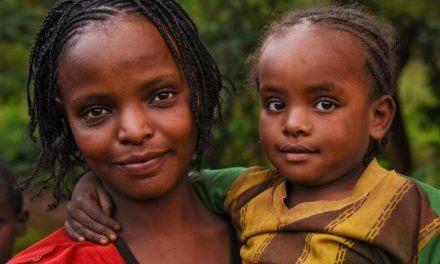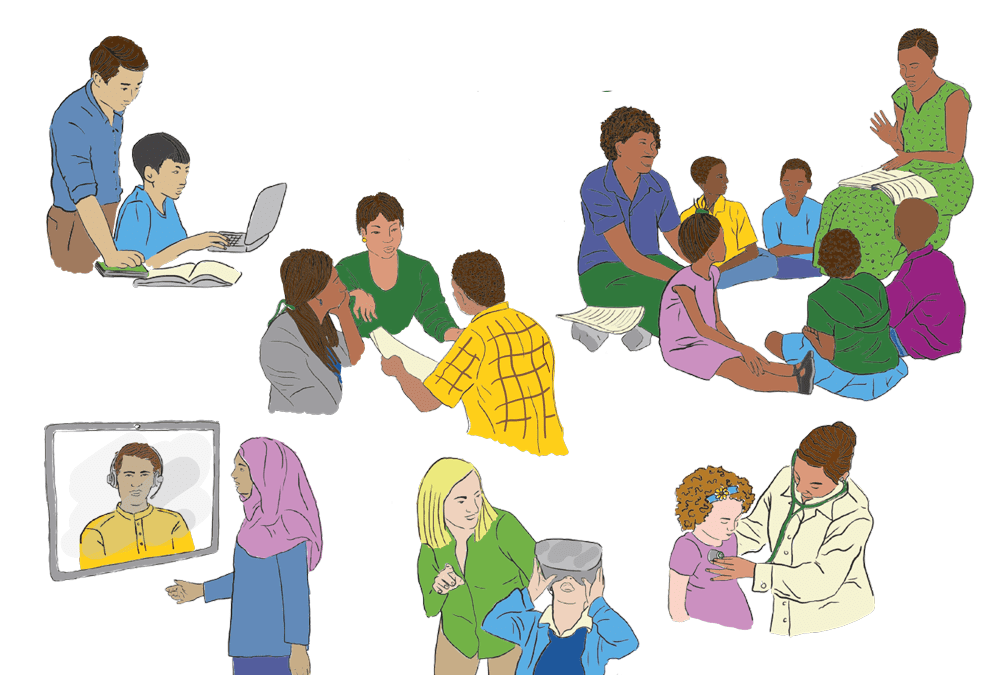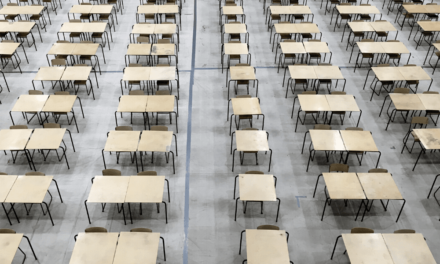This blog was written by Professor Pauline Rose, Director at the Research for Equitable Access and Learning (REAL) Centre, University of Cambridge. It was originally published on the Global Partnership for Education (GPE) Education for All blog page on 27 October 2020.
The Save Our Future campaign, supported by nearly 200 organisations around the globe, highlights that COVID-19 has placed an entire generation’s education and future at risk. This risk needs to be averted with urgency, given that education is also the solution to the longer-term recovery from this pandemic.
The Save Our Future White Paper, launched just a few days ago, stresses that we have to work together to turn this crisis into an opportunity. At the heart of much of the priorities identified with this paper is the importance of mobilising and redistributing resources for the poorest countries in the world.
This is in recognition of the fact that the pandemic is likely to have a greater adverse effect on resources available for education, and these were already too low in many countries.
According to estimates by the Global Education Monitoring Report, the annual external financing gap could increase by up to US$193 billion annually between 2020 and 2030.
This is due to additional pressures on domestic resources from the pandemic, as well as the costs of additional measures required to respond to COVID-19 education challenges.
In light of this, amongst the seven key action areas of the White Paper, two explicitly relate to funding:
- Protect education budgets and target public spending at those left furthest behind
- Mobilise international resources to fully finance education.
The need for a ‘progressive universalism’ approach
Building on the work of the Education Commission, the White Paper identifies the importance of national governments and aid donors to adopt a ‘progressive universalism’ approach to public financing, i.e. expanding the provision of quality education for everyone, while prioritising the needs of the most marginalised.
|
Immediate Action: National governments, in consultation with a broad range of stakeholders, to develop credible financing plans to fully finance education following principles of progressive universalism, including adopting equity financing formulas that reflect the needs of the most marginalized children. Save Our Future White Paper |
Given work that the REAL Centre has done for the Education Commission, Theirworld and the Mastercard Foundation on education financing before the pandemic, it is apparent that these recommendations are even more vital now.
Before the crisis, the share of total aid to sub-Saharan Africa for education had declined from 10% to 7%, between 2002 and 2016. It is promising that domestic resources increased over the same period, but there is a real danger that this progress is going to be lost as a result of the effects of the COVID-19 pandemic on economies around the world.
|
With increased pressures on volumes, aid will need to be directed to those most in need in low- and lower-middle-income countries and with priority to foundational learning — in line with principles of progressive universalism. Save Our Future White Paper |
Advocacy to mobilise domestic and aid resources is key in this context – and the recently-announced Global Partnership for Education’s (GPE) replenishment campaign – is central to this.
But, more than ever, attention needs to be paid to the distribution of resources. This is especially pertinent as the reality is that funds are likely to diminish, at least in the short term, resulting from likely reductions in tax revenue during the economic downturn facing many countries.
Prior to the pandemic, the increase in funds that countries had put into education in sub-Saharan African countries was to the benefit of secondary education, while primary education spending in some countries was actually on the decline.
This is a cause for concern given that at least half of the poorest children were not making it to the end of primary schooling in these countries. Related to this, the distribution of public financing was already highly inequitable between the rich and poor (see figure below).
Early warning signs indicate that these inequities could widen further as a sizeable proportion of the poorest may not return as schools reopen. And for those who do return, children who were already at risk of not learning foundational skills in literacy and numeracy may fall further behind.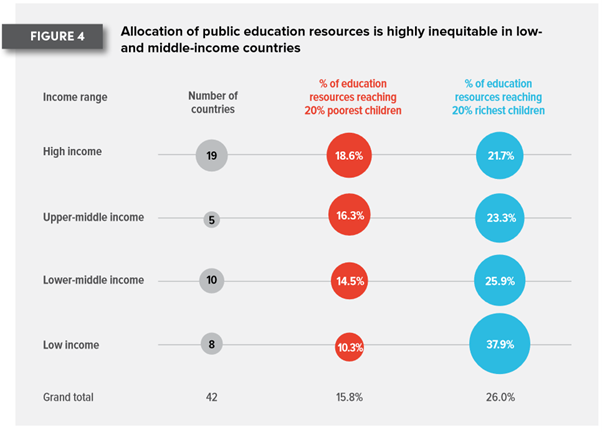 The figure above is from Save Our Future White Paper: Average share of public education resources reaching children from poorest and richest quintiles according to UNICEF calculations using the World Inequality Database on Education and UIS data.
The figure above is from Save Our Future White Paper: Average share of public education resources reaching children from poorest and richest quintiles according to UNICEF calculations using the World Inequality Database on Education and UIS data.
Pre-primary school and conflict contexts may suffer the most from the pandemic
Despite strong evidence to show that good quality early childhood education is a key stepping stone to a child’s future success in school and beyond, and much policy rhetoric to emphasise its importance, governments and donors currently contribute a miniscule amount to the sub-sector – with the amount declining in recent years.
In 2017, donors only allocated 0.5% of their education aid to early childhood education. In the context of the pandemic, there is a serious concern that young children will lose out further, as governments are not paying sufficient attention to early childhood education during school closures and their recovery plans.
To add to this, before the pandemic, resources were not sufficiently reaching countries facing crises situations, whether due to conflict, natural disasters or climate change. Over the years, less than 2% of humanitarian aid has been spent on education due to a perception that education is not life-saving.
The emergence of the Education Cannot Wait fund has helped place a spotlight on the countries facing crises, and played a role in mobilising resources for them. However, there are signs that the COVID-19 humanitarian response is once again failing education.
All of these issues about funding and how to target those who need it most, are vital for the GPE replenishment campaign. Not only do governments, donors and philanthropists need to get behind this campaign to make sure that funds for education are increased, but also distributed along lines of the progressive universalism approach.
This is the only way to ensure that a quality education is available for all in a post-pandemic world.

